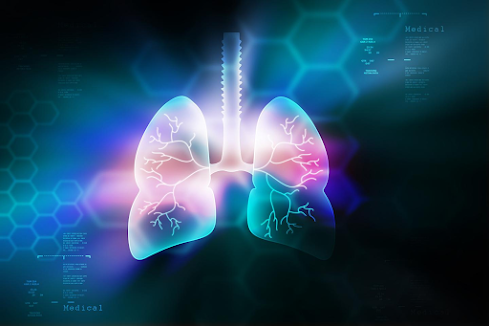Biggest CORRUPTION SCANDAL: 4.5 billion doses of covid-19 shot for 450 million EU residents
Published October 12, 2022
video
source
Το εύδαιμον το ελεύθερον, το δ’ ελεύθερον το εύψυχον. – Ευτυχισμένοι είναι οι ελεύθεροι και ελεύθεροι είναι οι γενναίοι. // // Happy are the free and free are the brave.
Published October 12, 2022
video
source
Published October 12, 2022
video
source
The Biden admin is terrified that if whistleblower Brook Jackson's case gets to discovery, it will likely implicate that high-ranking members of the Biden admin were involved in covering up one of the worst public health disasters in human history.
Attorney Robert Barnes: "How many people would be alive today? How many people would not be disabled today — had they known the information that Brook Jackson had and then she'd brought the case?"
Full Video: https://rumble.com/v1no02e-the-latest-on-brook-jacksons-whistleblower-case-against-pfizer.html
Ένα στέλεχος της Pfizer δήλωσε τη Δευτέρα ότι ούτε η ίδια ούτε άλλοι αξιωματούχοι της Pfizer γνώριζαν αν το εμβόλιο COVID-19 θα σταματούσε τη μετάδοση πριν κυκλοφορήσει στην αγορά πέρυσι.
Το μέλος του Ευρωπαϊκού Κοινοβουλίου, Ρομπ Ρους, ρώτησε κατά τη διάρκεια μιας συνεδρίασης: «Το εμβόλιο COVID της Pfizer δοκιμάστηκε ως προς τη διακοπή της μετάδοσης του ιού πριν εισέλθει στην αγορά; Γνωρίζαμε για τη διακοπή του εμβολιασμού πριν εισέλθει στην αγορά;»
Η Τζανίν Σμολ της Pfizer, πρόεδρος των διεθνών ανεπτυγμένων αγορών, δήλωσε ως απάντηση: «Όχι … Ξέρετε, έπρεπε να … κινηθούμε πραγματικά με την ταχύτητα της επιστήμης για να γνωρίζουμε τι συμβαίνει στην αγορά».
Ο Ρους, από την Ολλανδία, υποστήριξε σε ένα βίντεο στο Twitter τη Δευτέρα ότι μετά τα σχόλια της Σμολ προς τον ίδιο, εκατομμύρια άνθρωποι σε όλο τον κόσμο εξαπατήθηκαν από τις φαρμακευτικές εταιρείες και τις κυβερνήσεις.
«Εκατομμύρια άνθρωποι σε όλο τον κόσμο αισθάνθηκαν αναγκασμένοι να εμβολιαστούν εξαιτίας του μύθου ότι «το κάνεις για τους άλλους»», δήλωσε ο Ρους. «Τώρα, αυτό αποδείχθηκε ότι ήταν ένα φτηνό ψέμα» και «πρέπει να αποκαλυφθεί», πρόσθεσε.
Κανένας εκπρόσωπος της Pfizer δεν έχει κάνει μέχρι στιγμής κάποιο σχόλιο για το ζήτημα.
Ο Οργανισμός Τροφίμων και Φαρμάκων έγραψε στα τέλη του 2020 ότι δεν υπήρχαν διαθέσιμα στοιχεία για να προσδιοριστεί εάν το εμβόλιο θα αποτρέψει τη μετάδοση και για πόσο χρονικό διάστημα θα προστατεύσει από τη μετάδοση του ιού SARS-CoV-2 που προκαλεί την COVID-19.
«Προς το παρόν, δεν υπάρχουν διαθέσιμα δεδομένα για να προσδιοριστεί για πόσο καιρό το εμβόλιο θα παρέχει προστασία, ούτε υπάρχουν στοιχεία ότι το εμβόλιο εμποδίζει τη μετάδοση του SARS-CoV-2 από άτομο σε άτομο», σημείωσε συγκεκριμένα ο οργανισμός.
Εν τω μεταξύ, ο διευθύνων σύμβουλος της Pfizer, Άλμπερτ Μπουρλά, περίπου την ίδια εποχή, δήλωσε ότι η εταιρεία του «δεν είναι σίγουρη» αν όσοι λάβουν το εμβόλιο mRNA θα είναι σε θέση να μεταδώσουν την COVID-19 σε άλλους ανθρώπους.
«Νομίζω ότι αυτό είναι κάτι που πρέπει να εξεταστεί. Δεν είμαστε σίγουροι γι’ αυτό αυτή τη στιγμή», δήλωσε ο Μπουρλά στο NBC News τον Δεκέμβριο του 2020 απαντώντας σε ερώτηση σχετικά με τη μεταδοτικότητα.
Η πρώην ιατρική σύμβουλος του Λευκού Οίκου Δρ Ντέμπορα Μπιρξ αποκάλυψε τον Ιούνιο ότι υπήρχαν στοιχεία τον Δεκέμβριο του 2020 ότι τα άτομα που έλαβαν εμβόλια COVID-19, συμπεριλαμβανομένων των εμβολίων της Pfizer, θα μπορούσαν ακόμη να μεταδώσουν τον ιό.
«Γνωρίζαμε νωρίς τον Ιανουάριο του 2021, στα τέλη Δεκεμβρίου του 2020, ότι μετά από φυσική μόλυνση συνέβαινε επαναμόλυνση», δήλωσε η Μπιρξ, συντονίστρια του Λευκού Οίκου για την αντιμετώπιση της COVID-19 κατά τη περίοδο της κυβέρνησης Τραμπ, σε μέλη του Κογκρέσου φέτος.
Ορισμένοι αξιωματούχοι στις Ηνωμένες Πολιτείες και σε όλο τον κόσμο είχαν υποστηρίξει ότι τα εμβόλια COVID-19 θα μπορούσαν να αποτρέψουν τη μετάδοση. Μεταξύ αυτών, ο πρόεδρος Τζο Μπάιντεν τον Ιούλιο του 2021 σημείωσε ότι «δεν πρόκειται να κολλήσετε COVID αν κάνετε αυτά τα εμβόλια».

Δύο μήνες αργότερα, στα τέλη Ιουλίου του ίδιου έτους, ο Φάουτσι δήλωσε ότι τα εμβολιασμένα άτομα είναι ικανά να μεταδώσουν τον ιό.
Τους επόμενους μήνες, ο Φάουτσι, ο Μπάιντεν, η διευθύντρια του CDC Δρ Ροσέλ Ουαλένσκι και άλλοι στράφηκαν να πουν ότι το εμβόλιο αποτρέπει τη σοβαρή νόσηση, τη νοσηλεία και το θάνατο από την COVID-19.
πηγη
 |
First published at 12:36 UTC on October
video
https://www.bitchute.com/video/SxX2eKz4ZNEL/.
source
(Mirrored from UK Action). Six members of the European Parliament held a press conference on October 11, 2022, one day after Albert Bourla, Pfizer CEO refused to participate in the Covid committee and answer questions.
Video Timeline:
00:48 - MEP Francesca Donato (Italy)
04:38 - MEP Cristian Terhes (Romania)
12:56 - MEP Virginie Jeron (France)
15:01 - MEP Sylvia Limmer (Germany)
18:26 - MEP Ivan Sincic (Croatia)
22:41 - MEP Christine Anderson (Germany)
UK Action: https://www.bitchute.com/video/apnCWGLtmDaO/
 |
NEWS RELEASE
GRAPHENE FLAGSHIP
Myeloperoxidase - an enzyme naturally found in our lungs - can biodegrade pristine graphene, according to the latest discovery of Graphene Flagship partners in CNRS, University of Strasbourg (France), Karolinska Institute (Sweden) and University of Castilla-La Mancha (Spain). Among other projects, the Graphene Flagship designs flexible biomedical electronic devices that will interface with the human body. Such applications require graphene to be biodegradable, so it can be expelled from the body.
To test how graphene behaves within the body, researchers analysed how it was broken down with the addition of a common human enzyme - myeloperoxidase or MPO. If a foreign body or bacteria is detected, neutrophils surround it and secrete MPO, thereby destroying the threat. Previous work by Graphene Flagship partners found that MPO could successfully biodegrade graphene oxide.
However, the structure of non-functionalized graphene was thought to be more resistant to degradation. To test this, the team looked at the effects of MPO ex vivo on two graphene forms; single- and few-layer.
Alberto Bianco, researcher at Graphene Flagship Partner CNRS, explains: "We used two forms of graphene, single- and few-layer, prepared by two different methods in water. They were then taken and put in contact with myeloperoxidase in the presence of hydrogen peroxide. This peroxidase was able to degrade and oxidise them. This was really unexpected, because we thought that non-functionalized graphene was more resistant than graphene oxide."
Rajendra Kurapati, first author on the study and researcher at Graphene Flagship Partner CNRS, remarks how "the results emphasize that highly dispersible graphene could be degraded in the body by the action of neutrophils. This would open the new avenue for developing graphene-based materials."
With successful ex-vivo testing, in-vivo testing is the next stage. Bengt Fadeel, professor at Graphene Flagship Partner Karolinska Institute believes that "understanding whether graphene is biodegradable or not is important for biomedical and other applications of this material. The fact that cells of the immune system are capable of handling graphene is very promising."
Prof. Maurizio Prato, the Graphene Flagship leader for its Health and Environment Work Package said that "the enzymatic degradation of graphene is a very important topic, because in principle, graphene dispersed in the atmosphere could produce some harm. Instead, if there are microorganisms able to degrade graphene and related materials, the persistence of these materials in our environment will be strongly decreased. These types of studies are needed." "What is also needed is to investigate the nature of degradation products," adds Prato. "Once graphene is digested by enzymes, it could produce harmful derivatives. We need to know the structure of these derivatives and study their impact on health and environment," he concludes.
Prof. Andrea C. Ferrari, Science and Technology Officer of the Graphene Flagship, and chair of its management panel added: "The report of a successful avenue for graphene biodegradation is a very important step forward to ensure the safe use of this material in applications. The Graphene Flagship has put the investigation of the health and environment effects of graphene at the centre of its programme since the start. These results strengthen our innovation and technology roadmap."
###
The Graphene Flagship is one of the largest research initiatives of the European Union. With a budget of €1 billion, it represents a new form of joint, coordinated research initiative on an unprecedented scale. The overall goal of the Graphene Flagship is to take graphene and related materials from the realm of academic laboratories into European society, facilitating economic growth and creating new jobs, in the space of ten years. Through a consortium that combines more than 150 partners, both academic and industrial, the research effort covers the entire value chain, from materials production to components and system integration, and targets several specific goals that exploit the unique properties of graphene and related materials.
Angewandte Chemie International Edition
Disclaimer: AAAS and Eur
Το εύδαιμον το ελεύθερον, το δ’ ελεύθερον το εύψυχον. – Ευτυχισμένοι είναι οι ελεύθεροι και ελεύθεροι είναι οι γενναίοι. // // Happy are the free and free are the brave.